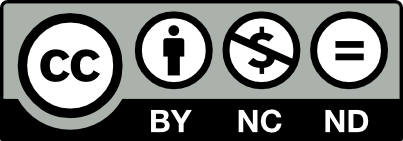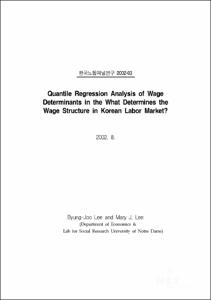- Author(s)
- 이병주
- Issued Date
- 2002
- Publisher
- 한국노동연구원
- Keyword
- 노동시장; 임금구조; 결정요인; wage structure
- Abstract
- This paper investigates wage determinants in the Korean labor market using the recently available Korean Labor and Income Panel Study (KLIPS). This paper uses the quantile regression method for each conditional quantile wage group. Most other labor market analysis uses (mean) regression analysis, which focuses only on average statistics. Different wage groups behave differently with respect to the different socio-economic covariates. Quantile regressions allow us to examine more comprehensive pictures for different quantile wage groups. In the Korean labor market, we found that age is the most significant factor for wage determination while experience is penalized for higher quantile wage groups. Education also plays an important role for wage determination as predicted, and the return on education is quite consistent among all wage groups. However, the return to education in Korea is relatively low when compared to labor markets in the U. S. and other countries. This difference may be explained partly by the fact that the Korean education system does not provide necessary job skills for workers. Female workers are significantly underpaid compared to their male counterparts. Union premiums increase for higher quantile wage groups, but lower quantile wage groups do not appear to enjoy comparable union premiums.
- Table Of Contents
- Abstract
1. Introduction
2. Empirical Model and Data Description
3. Empirical Results
3.1. Simple Regression Analysis
3.2. Quantile Regression Analysis
4. Conclusion
References
- Series
- 한국노동패널연구 2002-03
- Extent
- 35
- Type(local)
- Report
- Type(other)
- 패널자료
- Authorize & License
-
- Authorize공개


- Files in This Item:
-
Items in Repository are protected by copyright, with all rights reserved, unless otherwise indicated.




